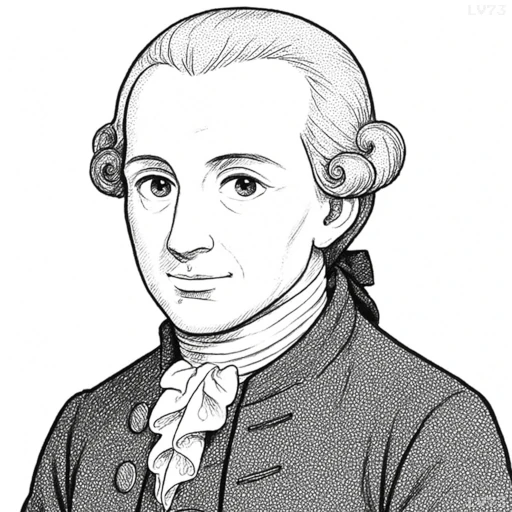“Immaturity is the incapacity to use one’s intelligence without the guidance of another.”

- April 22, 1724 – February 12, 1804
- Born in Germany (East Prussia)
- Philosopher
table of contents
Quote
“Immaturity is the incapacity to use one’s intelligence without the guidance of another.”
Explanation
In this quote, Immanuel Kant defines immaturity as the inability to think independently and make decisions based on one’s own reasoning. For Kant, maturity is not merely a matter of age but is tied to the capacity for self-directed thought and the ability to make moral judgments based on one’s understanding, rather than relying on the guidance or authority of others. Immaturity, in this sense, is the dependence on external sources of knowledge or authority—be it teachers, institutions, or societal norms—rather than engaging in independent, rational thought. Kant calls for individuals to exercise their autonomy by using their intellect to arrive at their own conclusions and actions, guided by reason rather than external influence.
In modern life, this idea is particularly relevant in discussions about personal growth, critical thinking, and education. Today, independent thinking is seen as a vital skill in both personal development and professional success. In an age where information is readily available through the internet and social media, the ability to critically analyze and independently assess this information is more important than ever. Kant’s view challenges individuals to develop their own reasoning abilities, moving beyond simply accepting ideas handed down by others. For instance, in politics or social issues, individuals are encouraged to think independently and critically evaluate the information they encounter, rather than simply adopting the views of authority figures or popular opinion.
Historically, Kant’s notion of immaturity was part of his broader Enlightenment philosophy, which emphasized the importance of individual autonomy, reason, and freedom. During the Enlightenment, there was a push to break free from traditional forms of authority, particularly those rooted in religion and monarchical power, and to embrace the idea that people could govern themselves through the use of reason. This idea of overcoming immaturity was a call to individuals to move away from dependence on external authority and to take responsibility for their own intellectual and moral development. Today, this continues to influence educational systems, democracy, and even self-help movements, where the emphasis is placed on empowering individuals to think critically, make informed decisions, and act based on their own rational judgment.
Would you like to share your impressions or related stories about this quote in the comments section?

